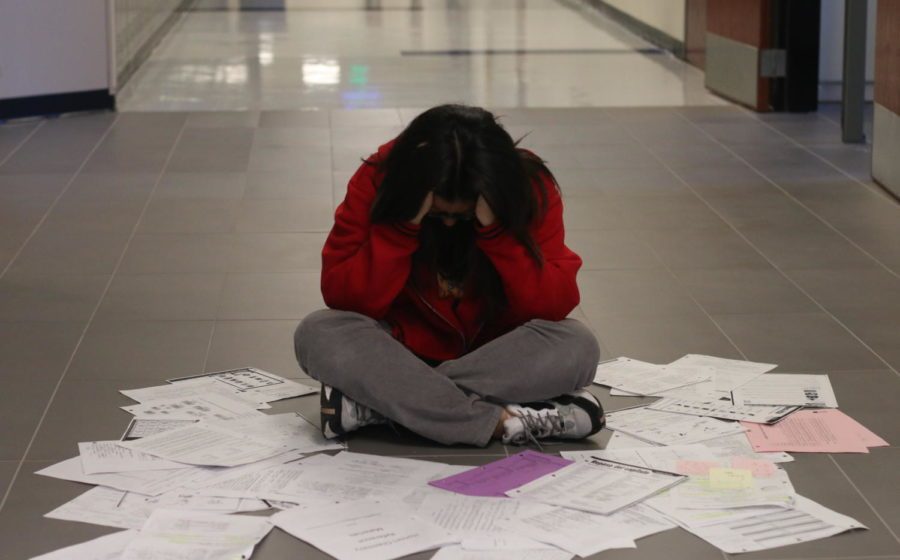
When becoming a teenager, you’ve reached the stage in life where you start to face big changes in mental health. This can really affect experiences in school, a place where teens spend a majority of their time.
While facing mental health challenges, it can be hard to reach out or feel understood. School can be a difficult environment, being drowned in work and surrounded by so many different people. Teachers just focus on teaching, and it can be hard to reach out to counselors with little time and familiarity. When students are suffering silently while being pressured at school, it can lead to feeling trapped. This can disturb school performance, causing more pressure, and it just goes into a long loop of stress.
“I struggle with staying focused in class and teachers don’t realize because they think I’m paying attention,” eighth grader Lujain Kadhim said. “So then I get behind on understanding, and the students around me are all ahead, making me feel nervous and dumb for asking for help. School has a huge effect on my mental health–teachers over pile us with work, causing stress. They don’t know what’s going on at home.”
Because of the extended time spent in school, it’s important that students feel safe and comfortable. If a student doesn’t feel seen or heard, they can isolate themselves and no longer try to reach out. With teachers unaware, they can be harsh and misunderstanding, only leading to more isolation.
“It’s really hard to speak about my mental health struggles because most people I talk to don’t understand and treat it as if it’s something funny,” Kadhim said. “Parents and guardians also underestimate mental health, making it hard for me to get the help I need.”
According to World Health Organization, one in seven 10-19-year-olds suffer from mental health disorders, “yet these remain largely unrecognized and untreated.” Though it is not all, those who do experience mental health disorders should be acknowledged and cared for, but it’s difficult when they are unable to reach out.
“Over the decades, the mental health needs of my students have grown, and grown, and grown,” intervention specialist Rene Myers said. “You can’t teach if you’re not addressing mental health.
As a place students learn, they should be introduced to more life skills and struggles earlier to raise awareness and help them prepare. A 2023 study states “in terms of understanding from others, 93 percent of respondents said they feel there isn’t enough awareness about what it means to live with a severe mental illness.”
“This survey reveals how anxiety permeates the lives of people severely affected by mental illness,” Mark Winstanley, Chief Executive of Rethink Mental Illness said. “holding them back from doing the things which many take for granted, even preventing them from getting beyond the threshold of their own homes.”
Students’ struggles are often overlooked and it can be hard for adults to understand how they feel as things change overtime. The use of social media has increased, and it has a huge impact on new teens.
“This is a new generation and everything has changed, including bullying,” Kadhim said. “On social media, everyone looks a certain way, causing unrealistic standards, insecurities, and not feeling like themself while trying to be someone else. Everyone’s trying so hard to not be an outcast.”